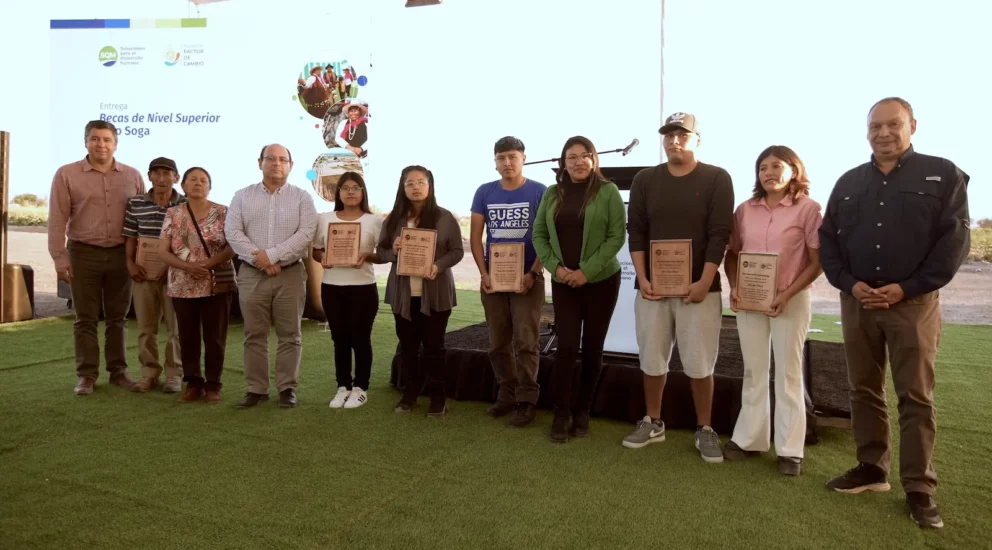
(Español) Jóvenes de Bajo Soga reciben beca para estudios superiores
14/Nov/2023
Diego, Valentina, Millaray, Alexis, Lucy and Isabel are the youth from Bajo Soga that benefited from the Higher Education Scholarship given by SQM and the Factor de Cambio Foundation.
The benefit was delivered at an awards ceremony attended by the students, their families and neighbors, who also enjoyed a cocktail reception and a presentation on the company’s most recent Sustainability Report by Pablo Pisani, Corporate Affairs Manager for SQM’s Nitrates and Iodine Division.
Millaray Chamaca, a beneficiary and third-year undergraduate studying English, was appreciative of the contribution, commenting: “I study in Arica and spend a lot of money on transportation, so I will use this scholarship mainly for that, as well as books and study materials. The joint effort by Bajo Soga and SQM is quite significant. A lot of help has been provided for progress and it is very nice to see all these changes in our town.”
Pablo Pisani highlighted the many achievements in recent years, adding that “this community has welcomed us very warmly and we have achieved great things with them, not only in agriculture, but also in education, such as these scholarships for higher education. It is important to recognize the efforts of these young people to study far from home.
This incentive is one of the main objectives of the company’s community engagement efforts, striving to work together with the communities surrounding its operations, generating shared social value and bringing together various institutions that contribute to the development of agriculture, health, education and healthy living.
Héctor Anabalón, executive director of the Factor for Change Foundation, recognizes this: “As a foundation, we have collaborated a lot with SQM for the benefit of various towns in Tarapacá, impacting towns such as Pozo Almonte, Huara, Bajo Soga or Pisagua, with initiatives related to productive development, education and quality of life.”
For example, over the last year, the Bajo Soga Working Group has carried out health screenings, sports initiatives, road improvements, technical training, donations of farming machinery and educational scholarships, thus significantly improving local families’ quality of life and reinforcing its commitment to the territories in northern Chile.